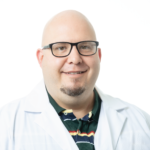Summer is officially here and for many of us, that means spending more time outdoors and in the sun. The month of July is Ultraviolet (UV) Safety Awareness Month, meant to raise awareness on the harmful effects of UV rays on your eyes and skin, as well as to share tips on the best way to protect yourself from UV radiation. Whether you’re lounging by the pool, out on a hike, or at the beach this summer, it’s important to understand UV radiation fully, so you can decrease your sun exposure and your chance of developing skin cancer.
What is UV Radiation?
UV radiation is emitted by the sun and other artificial sources, such as tanning beds. It consists of UVA, UVB, and UVC radiation. In nature, UVC and a portion of UVB radiation is absorbed by the ozone layer of the Earth. This leaves UVA and some leftover UVB radiation for humans to absorb. UV radiation is useful in the promotion of good health, providing benefits such as the production of Vitamin D; but overexposure to UV radiation can result in health problems such as skin cancer, eye disease, and sun burns.
In the United States, skin cancer is the most common form of cancer and is directly linked to UV radiation exposure. One important recommendation is to stay out of tanning beds, which emit UV levels 100 times higher than natural sunlight. Studies show tanning beds cause skin cancer at higher rates than normal sun exposure.
Types of Skin Cancer
There are three types of skin cancer. The two most common forms, Basal Cell Carcinoma and Squamous Cell Carcinoma are often found on sun exposed areas of the upper body. Melanoma is the third type, and it is the most concerning. This is due to Melanoma’s ability to metastasize or spread to other areas of the body. Regular skin checks are recommended to help prevent, identify, and treat these types of cancer. As with any cancer, early detection is key.
It is recommended to have any mole or skin lesion that is changing in appearance (size/shape/color/texture), or any lesion that is symptomatic (itching, bleeding, or painful), especially if the lesion is new, examined promptly by a medical professional.
UV Radiation Safety
The best way to prevent UV-related health problems is to limit overexposure to UV radiation. The easiest option is to limit exposure by either staying in the shade or indoors. If venturing outdoors, protective clothing (shirts, hats, and sunglasses) has noted benefits. Of course, sunscreen is also a viable option. The most important thing to remember with sunscreen is to re-apply every 2 hours, especially if swimming or sweating. A sunscreen with SPF of 15 or higher that also contains Zinc Oxide or Titanium Dioxide will offer the best UV protection.
Remember to seek medical advice for any new or changing lesion, especially if it is becoming symptomatic (itching/bleeding/painful). Another useful tool is learning the ABCDE’s of Melanoma. The more of the following criteria a mole/skin lesion embodies, the higher the concern for Melanoma.
- A refers to asymmetry: concerning lesions typically are asymmetrical.
- B refers to the border around the mole/skin lesion: concerning lesions typically have an irregular border.
- C refers to the color: concerning lesions typically have non uniform or changing color.
- D refers to diameter: concerning lesions typically have a diameter of >6mm (size of the eraser on the head of a pencil).
- E refers to an evolving nature: concerning lesions typically will change (in shape/size/color) or evolve over time. Regular self-exams and yearly full skin checks by a medical professional are a wonderful way to help identify and treat potential concerning moles, skin lesions, and skin cancers. If in doubt, ask your medical professional!
Enjoy the summer, but remember to protect yourself and your skin from UV radiation!
Want to learn more about sun safety? Check out our blog post on Everything You Need to Know About the Sun.
Colin Gage is a board-certified Physician Assistant. Colin attended Western Carolina University for his undergraduate education in Biology. He then attended Barry University in Miami, Florida for his graduate education in physician assistant studies. Colin spent time working in orthopaedics and emergency medicine, before moving back to Raleigh in 2014. Prior to coming to Avance Care, Colin worked in the field of dermatology.
Colin enjoys the variety that family medicine offers. He has a particular passion for skin conditions. Colin believes that good communication and patient education are the keys to patient wellness.



